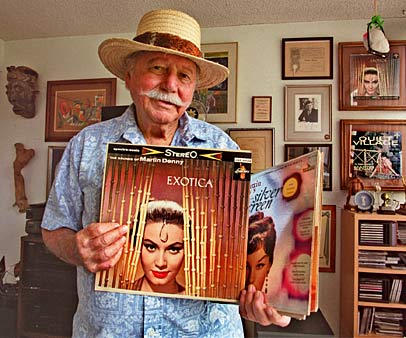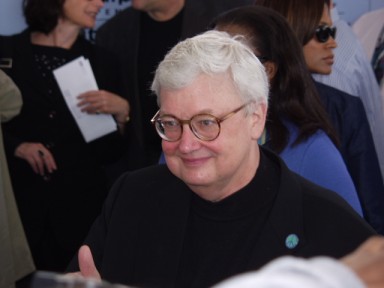
Author / DrMabuse
What Next? Doc Manhattan Played by Ashton Kutcher?
Hey, producers, hack screenwriters and directors, and other cretinous bastards walking through the slimy alleys of Hollywood: Stop fucking around with Alan Moore’s work! (Or rather, Alan Moore, stop allowing these guys to fuck with your work. Do you really need more Victorian erotica to add to your copious collection in the east wing of the estate? Shit, Alan. It ain’t worth it!)
From Hell was a tepid affair. The League of Extraordinary Gentleman was abominable. And if, as this guy reports, you’re going to tamper with the careful politics of V for Vendetta and dilute this fantastic masterpiece of all its punch — if you motherfuckers can’t even “adapt” a fucking comic book, then you have no business being in show business.
And on a related note, why does The Bourne Supremacy make Paul Greengrass the ideal man to direct The Watchmen? Wasn’t Terry Gilliam attached to this at once point? (via Bookslut)
Behind the Book Sense List
The latest Book Sense picks have been announced. What follows is an attempt to provide additional information on the selected titles. After all, testimonials are one thing, but comprehensive coverage is another. I have deliberately skipped over the heavy hitters (McEwan, Foer and Levy), because, as good as their work may be, they have all the hype and press agents they need.
Gods in Alabama by Joshilyn Jackson [Author’s Website]
Never Let Me Go by Kazuo Ishiguro [Overview] [January interview]
The King’s English: Adventures of an Independent Bookseller by Betsy Burton [King’s English Bookstore] [Letter from Burton to Orrin Hatch]
Saturday by Ian McEwan
Extremely Loud and Incredibly Close by Jonathan Safran Foer
The Ice Queen by Alice Hoffman [Book Reporter profile] [Ploughshares profile]
Bound for Canaan: The Underground Railroad and the War for the Soul of America by Fergus M. Bordewich [Official Website]
Conspiracy of Fools: A True Story by Kurt Eichenwald [Website] [Random House profile]
Dear Zoe by Philip Beard [Official site]
Me & Emma by Elizabeth Flock [Excerpt]
Too Late to Die Young by Harriet McBryde Johnson [“Unspeakable Conversations”]
Misfortune by Wesley Stace [Official site]
Small Island by Andrea Levy
Cut and Run by Ridley Pearson [Official site]
Lost in the Forest by Sue Miller [interview]
You Can’t Get There From Here: A Year on the Fringes of a Shrinking World by Gayle Forman [“Women in War”]
Bleedout by Joan Brady [Website]
A Short History of Tractors in Ukranian by Marina Lewycka [London Times review]
Towelhead by Alicia Erian [“When Animals Attack”]
A Changed Man by Francine Prose [“Living Legends”]
But It Still Doesn’t Explain the Silly Conspiracy Theory in Kurt and Courtney
Nick Broomfield fans (namely, certain monkeys) may be interested to know that a collection of interviews revealing the documentarian’s working methods, Jason Wood’s Nick Broomfield: Documenting Icons has arrived. Daniel Graham has the scoop: “At the heart of Broomfield’s work is a genuine desire to understand the world we live in and to offer his findings to a wider public. He’s certainly right in asserting that evening news bulletins barely scratch the surface when it comes to the more complex issues that trouble the world today, and are often filtered through an inane and commercially-driven editorial process. Is this really preferable to Broomfield’s subjective yet greatly detailed and researched version? Even the documentarist of the day – Michael Moore – comes across like a blunt instrument when viewed next to Broomfield’s work.” (via Greencine Daily)
SF Sightings — Roger Ebert
 They stood in aisles bordered by bookshelves. They squeezed into pint-sized crannies. They craned their necks and looked at their watches, wondering when The Big E would arrive. At least 250 devotees packed the second floor of Stacey’s to catch a glimpse of America’s most famous critic. He was there to hawk his new book, The Great Movies II.
They stood in aisles bordered by bookshelves. They squeezed into pint-sized crannies. They craned their necks and looked at their watches, wondering when The Big E would arrive. At least 250 devotees packed the second floor of Stacey’s to catch a glimpse of America’s most famous critic. He was there to hawk his new book, The Great Movies II.
The big boys in charge had billed this as an “event.” The man was clearly mobbed. A quiet awe settled over the throng upon Ebert’s quiet ascension to the podium. Stacey’s management gave the obligatory intro, and Ebert, with his trademark cherubic grin settled upon his face, took in the demographic of mostly thirtysomethings sacrificing their lunch hour. Ebert, having awoken from a recent nap, began speaking in a grandfatherly voice. My general impression was that, despite his recent stroke, he was very articulate, although every time he tried to reference a movie, he kept coming back to The Grapes of Wrath. He was also a great racountuer and did a very good Lee Marvin impression.
He started off by noting that we all looked like splendid readers. He remarked that while he could live without movies, he could not live without books (although he wouldn’t particularly enjoy life without movies).
Ebert’s idea of a “great movie” came from the Guardian critic Derek Malcolm. He noted that he had considerable problems with including Birth of a Nation in the first volume. But he was determined to follow through. His initial review was the only double-length piece he had written for the Sun-Times, with the first half apologizing for the second half. Finally, he rewrote the piece from scratch and got it out of his system, pointing out that Birth was the only film that he could not revisit, contrary to Malcolm’s definition.
Ebert remarked that Birth was “vile” and “evil,” but pointed out that it was still a great movie and set the film language of our time. He pointed out that Woodrow Wilson had praised the movie, despite being the President of the United States, a Democrat, a liberal, and a member of the Ku Klux Klan. Clearly, Ebert suggested, despite the climate of the past five years, America had made greater progress in the past century.
Ebert described what it was like trying to write backstage at the Oscars. The level of security is extraordinary. (And Ebert pointed out that the backstage area was perhaps the worst target for terrorists to attack, since it was far from the main action.) To obtain even the headphones to plug into the broadcast, he had to show his driver’s license. Picture a reporter with a laptop, spending the entire night filing one paragraph after another to the editors in Chicago (who are rearranging the piece in backwards order of importance, with the least important paragraphs being composed before the major ones). In one ear, the reporter has the earphone. In another ear, foreign journalists are screaming into telephones, causing a polyglot racket. And then there are the winners, who are shuttled out in front of them.
Among these journalists, Ebert described another contingent. A bunch of folks who none of the veterans could name, but who didn’t take notes and who didn’t have laptops. These were the folks who got to ask the questions. Which explained all the dumb ones.
Ebert mentioned that Cate Blanchett’s reply to one of these dumb questions was the funniest thing he had heard since covering the Oscars in 1968. Blanchett, who Ebert suggested was one of the most elegant actresses around (and who couldn’t refrain from mentioning about how nice the dresses were this year), had been asked by one of these boneheads if her Oscar would have any impact on her career. She replied, “Absolutely, asshole.”
Ebert mentioned that he wished Martin Scorsese had won for Best Director. He revealed that he preferred Keaton to Chaplin, because Chaplin wanted to be liked and Keaton didn’t care. He also revealed the ridiculous waivers that journalists had to sign to get interviews. For example, if you want to talk with Tom Cruise, you can’t mention politics, the girl he’s dating, and you can’t write anything bad about them. Plus (here’s the kicker), if you violate the terms of the agreement, you open yourself up to being sued by Cruise’s people. The answer, Ebert remarked, was simple: No Tom Cruise interview.
Ebert had a great Lee Marvin story from the old days. He profiled Marvin for Esquire and headed to his home in Malibu. He was told not to arrive before noon. Marvin opened the door, still in a bathrobe, with four days’ growth of stubble on his face, holding a Heineken. He proceeded to spend the next three hours trashing everyone he had ever worked with and every film he had ever appeared in. “Josh Logan? Not a very good director. He makes a movie with singing boys and has me and Clint Eastwood sing.”
Marvin’s girlfriend returns. Marvin demands more beer. The green stuff. She refuses. He orders it himself over the phone.
Then his dog shows up with something in its mouth. Marvin notices that it’s a pair of panties. His girlfriend remarks that they’re not hers. Marvin replies, “Bad dog.”